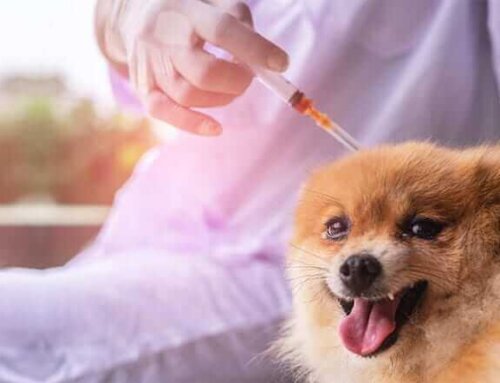This week I volunteered to pet sit a 13 year old Yorkie who belongs to one of my house-call clients. Her owner claims she is perfect. She is indeed adorable – an 8 pound cutie pie with what I call a “Dorothy Hamill” bobbed hairdo and a ribbon in her hair. She’s a snuggle bunny with people, but when around other dogs or cats she is a tyrant.
Why would a little dog talk trash to bigger, tougher pets who could honestly eat her for lunch? Oh, pet politics! I tell her she makes bad life choices and will eventually get munched.
Whether your pet is the instigator of an altercation or the innocent surprised victim of a misbehaving pet, both pets involved may get their licks in. If there is an overt laceration or wound, the pet owner often brings the pet to the vet clinic for medical care. Unfortunately, if there is a mere puncture or minor swelling, pet owners often opt to monitor at home. I urge you to seek veterinary care immediately should your pet be in an altercation. Veterinarians go through 8 years of college and examine pets on a daily basis. We know what to look for that owners might miss. What may seem like a little boo boo may actually be the tip of the iceberg.
The canine teeth of dogs and cats can cause punctures and deposit germs into wounds that can result in abscessation. If there are breaks in the skin your vet will likely start an antibiotic. Additionally, crushing injury can cause damage to internal structures such as lungs and intestines. Internal injuries may not fully manifest for days (up to a week), so monitor closely for any loss of appetite, lethargy, fever, etc. Regardless of whether there is infection or simply tissue trauma, inflammation will likely result in pain. Your veterinarian can provide analgesic medications.
Once everyone has gone to their corners and both parties have received proper medical care, you should consider reporting the incident to the local county animal control, particularly if you do not know the attacker. You should check that the pet who attacked has had a rabies vaccination. Perhaps that pet already has a history of aggressive behavior. By reporting a dangerous animal, you may prevent the next innocent pet from a similar attack.
Most people with aggressive pets take measures to avoid situations where their pet could injure another pet. Unfortunately, there are still some knuckleheads in our society who continue to take their animal-aggressive pets to dog parks and public areas and let them off leash. It’s like the client who tells the vet staff (usually all too quickly) that “he would never bite” when an uncooperative pet is exhibiting aggressive behavior or even clearly trying to bite the technician!
I hope you never find yourself in a situation where your sweetie is attacked. If you do, even if the injury seems minor, please take your pet to your veterinarian for evaluation of the injury.
NOTE: Consult your Veterinarian first to make sure my recommendations fit your special health needs.












Leave A Comment